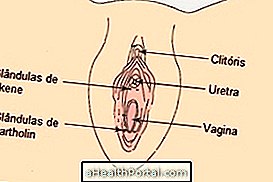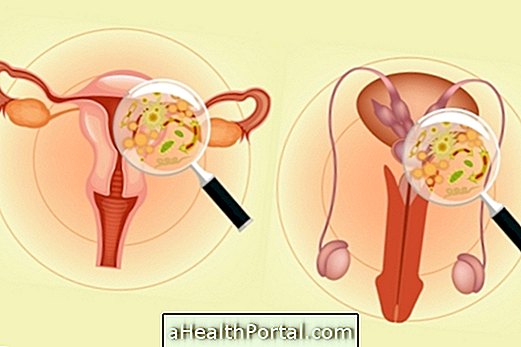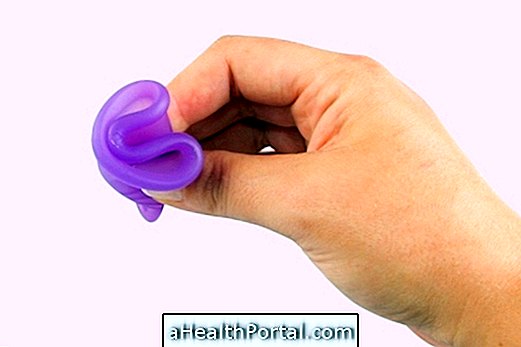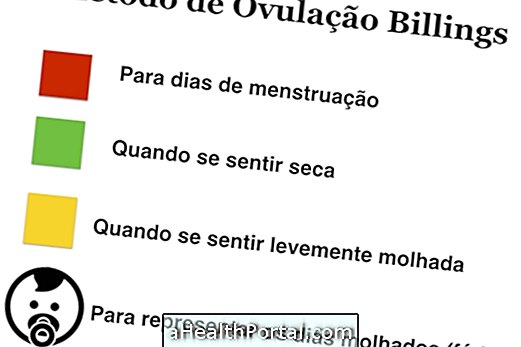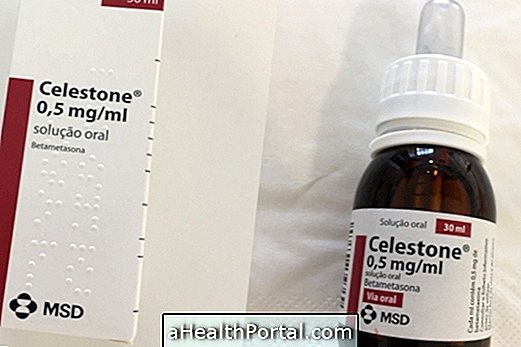Dyspareunia is the name given to a condition that promotes a genital or pelvic pain during intimate contact or during the climax, which although it may occur in men, is more common among women. This dysfunction can happen at any stage of life causing suffering and difficulty in the loving relationship.
Some causes of pain and involuntary contraction of the vagina that prevents penetration are the use of antidepressant medications or during the first intercourse due to hymen rupture. However, men can also have a lot of pain during intimate contact due to problems like homosexual escape or heterosexuality.
To combat dyspareunia and to achieve a complete and pleasant intimate contact it is important to find out its cause and perform the appropriate treatment, which can be guided by a sexologist, urologist or gynecologist, when the causes are physical.

How to know if it is dyspareunia
The diagnosis of dyspareunia should be made by the gynecologist or urologist, after observing the genitals and hearing the person's complaint. The doctor may also order tests such as pap smears and pelvic ultrasound to identify possible causes and thus indicate appropriate treatment.
Unlike vaginismus, dyspareunia is more associated with physical problems and the pain can be so intense that it impedes intercourse.
Main causes
Usually the pain during intimate contact has psychosomatic origin and has emotional factors involved, however, it can also occur due to:
- Little or no vaginal lubrication;
- Infections or inflammation of the Bartholin and Skene glands in the genital region;
- Condom placed improperly;
- Misaligned diaphragm;
- Allergic reaction to contraceptive foams or gels;
- Infections of the cervix (uterine cervix), uterus or uterine tubes;
- Endometriosis;
- Vulvodynia;
- Pelvic Congestion Syndrome
- Peronye syndrome in men;
- Pelvic tumors and adhesions or scars after a caesarean section;
- Some congenital malformation, such as a complacent hymen or a septum that abnormally divides the vagina. Learn what complacent hymen is here.
In addition, dyspareunia can occur at menopause or when the woman is doing some form of cancer treatment because, aside from the emotional factor, it does not favor intimate contact, radiotherapy also causes changes in the tissues that make intimate contact painful.
How to cure dyspareunia to improve intimate contact
Finding out the cause is the best way to treat and heal pain during sex. When the causes are physical it may be necessary to take analgesic, anti-inflammatory or antibiotic medicines, and in some cases it may be necessary to resort to surgery and when the causes are emotional it may be a good option to have sessions with a psychotherapist and a sexologist to improve the intimate contact.
Some strategies that may help are:
- To take care of the loving relationship, to guarantee the intimacy and intimacy of the couple, taking time for each other;
- Follow the treatment indicated by the doctor or sexologist;
- Knowing one's own body, partner's body and emotions;
- Be rested both physically and mentally;
- Attempt the intimate contact in a calm and quiet environment, away from stress;
- Stipulate a day for the meeting and prepare for intimacy during the day;
- Light meals, in small quantity, but with aphrodisiac foods;
- Use intimate lubricant before and during the attempts;
- Set a limit, so the partner knows when to give up if you are not comfortable;
- During the preliminaries be confident and say the when you like and are happy with your partner.
Also, being confident that intimate relationships will not be harmful to the couple helps to improve intimate contact gradually, even if it takes an investment of months and even years to achieve a healthy intimate life.
See too:
- 5 Benefits of Masturbation for Women's Health
